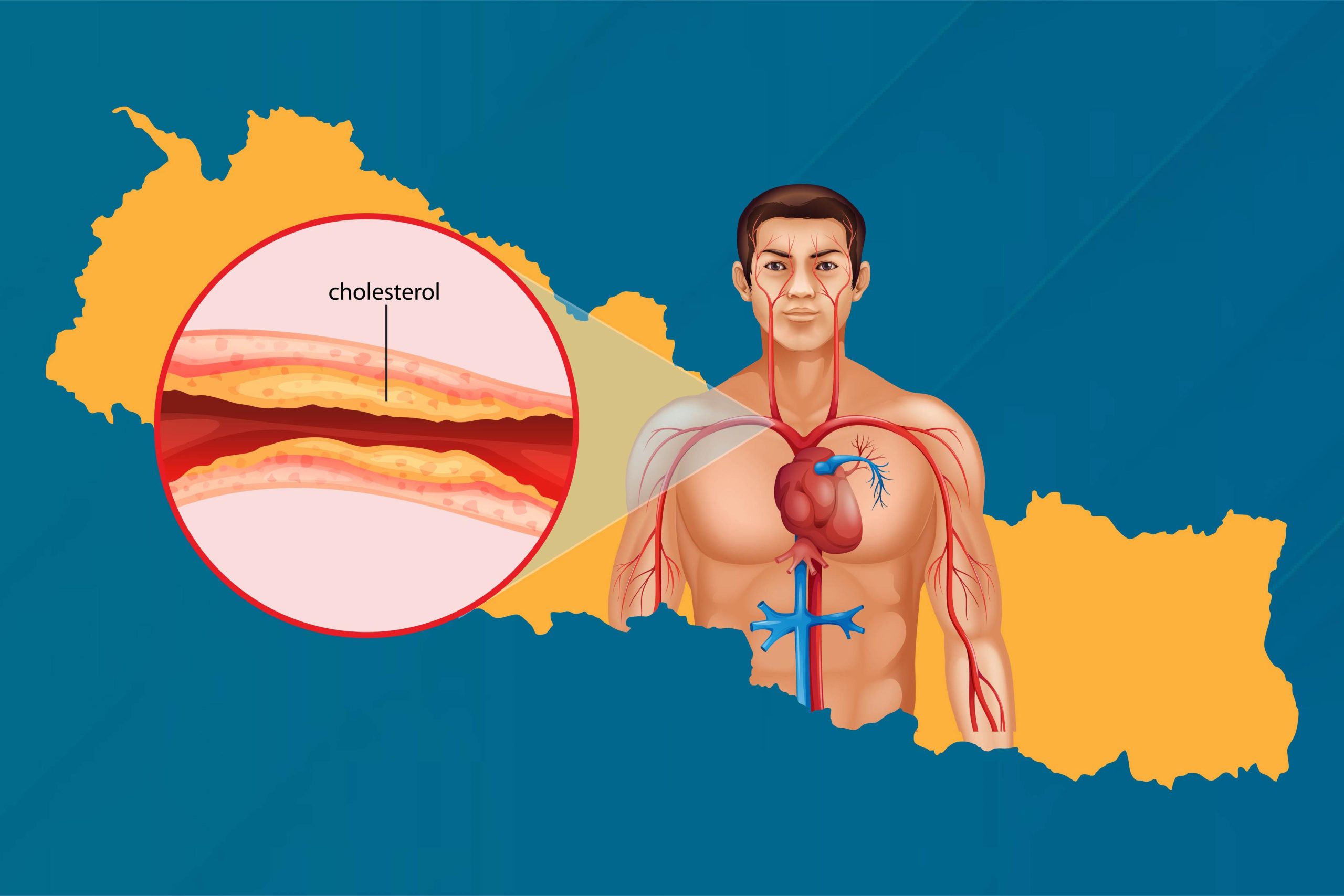
The Rising Problem of High Cholesterol in Nepal: Causes and Solutions
Cholesterol is a fatty substance that is found in the bloodstream and is necessary for the body to function properly. However, too much cholesterol can lead to health problems, such as heart disease, stroke, and high blood pressure. Unfortunately, the problem of high cholesterol is on the rise in Nepal, with more and more people being diagnosed with the condition every year.
One of the major factors contributing to the increasing problem of high cholesterol in Nepal is changes in lifestyle. With urbanization and modernization, people in Nepal are becoming more sedentary and relying on fast food and processed foods that are high in saturated and trans fats, which contribute to high cholesterol levels in the blood. This shift in lifestyle, coupled with the traditional Nepali diet that is high in meat and dairy products, is contributing to the increasing prevalence of high cholesterol in the country.
Another factor contributing to high cholesterol levels in Nepal is a lack of awareness and education about healthy eating habits. Many Nepali people are unaware of the health risks associated with high cholesterol and do not know how to make healthy food choices to manage their cholesterol levels. Additionally, the lack of access to healthcare in many parts of Nepal makes it difficult for people to get screened for high cholesterol and receive appropriate treatment.
To address the problem of high cholesterol in Nepal, lifestyle changes are necessary. This includes adopting a healthy diet that is low in saturated and trans fats and rich in fruits, vegetables, and whole grains. Regular exercise is also important in managing cholesterol levels, as it can help to lower LDL (bad) cholesterol and raise HDL (good) cholesterol. Avoiding smoking and limiting alcohol intake can also help to manage cholesterol levels.
For those with high cholesterol, medication may be necessary to manage the condition. Statins are a common type of medication used to lower cholesterol levels in the blood. However, medication should be used in combination with lifestyle changes to manage high cholesterol effectively.
In conclusion, high cholesterol is a growing problem in Nepal, with changes in lifestyle and lack of awareness contributing to the increasing prevalence of the condition. Lifestyle changes, such as adopting a healthy diet and regular exercise, are important in managing cholesterol levels. Increased awareness and access to healthcare can also help to address the problem of high cholesterol in Nepal. By taking steps to manage high cholesterol levels, individuals can reduce their risk of serious health problems and improve their overall health and well-being.


